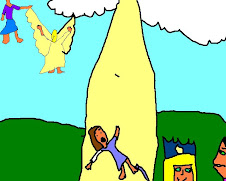
I love Gothic novels.
Since Horace Walpole wrote The Castle of Otranto in 1764, other writers have been emulating a version of this romantic terror from behind heavy castle doors a million miles from the normal world. A parallel world where Byronic heroes, madwomen in attics, monsters, angels, sirens and vampires replace stock characters of the realist novel. I remember visiting the Bronte Parsonage, in the quaint village of Haworth, many many times. And walking the same moors which provided the setting for Emily's 'Wuthering Heights' and wondering how Charlotte coped alone after the death of her brother and sisters. I remember walking around the tiny rooms, with their collections of original garments worn by Charlotte, the rooms where they sat and wrote Jane Eyre, the Tenant of Wildfell Hall and Wuthering Heights, and wondering where that genius comes from. The Bronte women rarely left the Parsonage in rural Haworth, so the vast majority of their work came from their imagination alone. Jane Eyre is one of my favourite novels. I read it (again) whilst I was pregnant with my eldest daughter and decided that, if she was a girl, she would be a Charlotte. And I found a beautiful edition of Jane Eyre when Charlotte was a baby, which I tucked away in a keepsake box for her.
I'm in a book club and we are reading 'The Thirteenth Tale' which was suggested by one of the women.
Who also just happens to be the sister of the Author, Diane Setterfield.
I didn't really enjoy the last novel we read ( Miss.Garnett's Angel ) which was unnecessarily confusing( I don't mind wordy prose and clever plot devices, but logic and clarity is appreciated) and had a silly, silly ending.
But this novel was really very satisfying, in the Gothic tradition. I loved it. The only criticism I might level towards it is that there was really no need to remind us that the inspiration came from the Bronte sisters. Most of us are familiar with Jane Eyre and would have spotted the association almost immediately. Words never die.
Thank goodness I loved this novel.
I would have been forced, by conscience and sheer bloody mindedness, to confess my dislike for the novel had I hated it, and then probably offended the writers lovely sister. But no need, because it's wonderful. Biographer Margaret Lea goes to a remote house on the Yorkshire moors to meet the elderly writer Vida Winter ( the novel has some other wonderfully named characters such as Aurelius Love ) and write the story of her incredible life..... what she discovers is a tale of Gothic tragedy, secrets, ghosts and self discovery. It's beautifully written. At one point, I wondered if the writer was about to parody the Gothic genre, in the style of Jane Austen in Northanger Abbey, but no. And I've been long overdue a thumping good story ( I normally select novels which are beautiful character studies of people and families ) so this went down a treat.





No comments:
Post a Comment